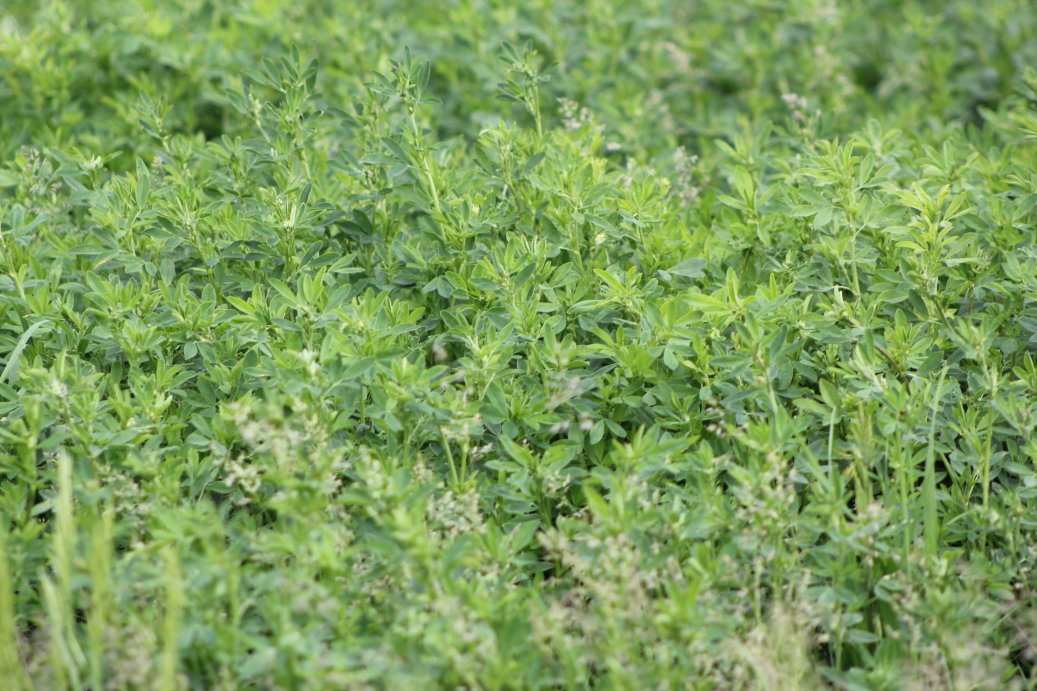
By Bruce Anderson, Nebraska Extension Forage Specialist
Rain has delayed many folks from cutting alfalfa. If you haven’t taken first cutting yet, it might help if you slightly changed the way you cut this crop.
Have you harvested your first cutting of alfalfa yet? Even if it is not blooming heavily, you might be surprised to find that it already has started to grow your next cutting.
Walk into your alfalfa field before cutting and look closely at the base or crown of the plants. Do you see short, new shoots starting to grow? If so, these new shoots are the new plants that your alfalfa hopes to turn into your second cutting.
Look closely – how tall are these new shoots? Are many of them a couple inches taller than your usual cutting height? If you cut these new shoots off – along with the first growth – your alfalfa plants will have to start a whole new set of shoots for regrowth. This could cause a delay in second cutting regrowth by as much as one week.
Fortunately, you can avoid this delay. All you need to do is raise your cutting height just a couple inches so that you avoid clipping off most of these new, second growth shoots. Your regrowth then will have a head start towards next cutting. And since the stubble you leave behind has quite low feed value anyway, the yield you temporarily sacrifice is mostly just filler.
Normally I suggest cutting alfalfa as short as possible because that maximizes yield and it doesn’t affect rate of regrowth. But a late cutting that already has new shoots growing is different.
Don’t blindly start cutting alfalfa when harvest is delayed. First look for new shoots, then raise cutting height if needed.